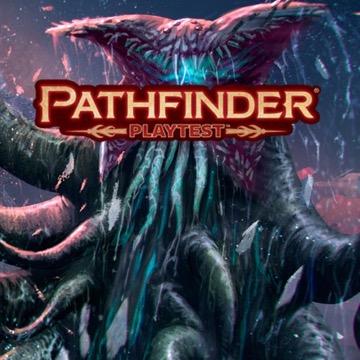Hey there everybody. As of today, we're just about halfway through the spotlight period of the Doomsday Dawn adventure, and while we still have many months to go before the end of the playtest period, we've learned a lot in the past two months!
First and foremost, thank you for your participation! We could not do this without you. Your feedback has been vital in telling us where the game needs work, and we're looking forward to seeing what you uncover in the last parts of the adventure. I'd also like to take this opportunity to remind you that if you haven't played up through Part 3 of Doomsday Dawn, you have nothing to fear. The surveys for all of the previous parts are still open, and there's still much more for us to learn from your input.
What Are Our Goals?
In the past few months, the design team has been on just about every different news and interview forum out there. We've talked about the changes we've made and why we made them. We've talked about where we wanted to go and why we wanted to take the game there; but in all the rush, we've realized that the one place where we haven't categorically stated our goals is right here, in this blog. So without further delay, here are our primary goals for the playtest.
- Create a new edition of Pathfinder that's much simpler to learn and play—a core system that's easy to grasp but expandable—while remaining true to the spirit of what makes Pathfinder great: customization, flexibility of story, and rules that reward those who take the time to master them.
- Ensure that the new version of the game allows us to tell the same stories and share in the same worlds as the previous edition, but also makes room for new stories and new worlds wherever possible.
- Work to incorporate the innovations of the past decade into the core engine of the game, allowing the best rules elements and discoveries we've made to have an integrated home in the new system (even if they aren't present in the initial book).
- Forge a more balanced play environment where every character has a chance to contribute to the adventure in a meaningful way by allowing characters to thrive in their defined role. Encourage characters to play to their strengths, while working with others to bolster their place in the group.
- Make Pathfinder a game that's open and welcoming to all, no matter their background or experience.
There are plenty of other things that are important to us as we work to create a new edition of Pathfinder, but these points are some of our strongest motivators. I think it's important to note that these are guidelines and not necessarily listed in order of importance. Furthermore, a guideline might be more important in some parts of the game than it is in others. When making something this challenging, it's very useful to give yourself guiding principles, while also understanding that you're never going to be 100% perfect. In any case, for those of you who were interested in why the game has changed in the ways that it has, we hope that laying out our goals for the process can help you understand our decisions.
MORE Surveys
The surveys never end here at Paizo, and this week is no exception. We have been incredibly pleased by the results from the Doomsday Dawn surveys as well as the more general surveys we launched two weeks ago looking at ancestries, backgrounds, and classes. Today we'd like to open up two more general surveys.
The first is focused on the general rules for playing the Pathfinder RPG. This survey is a large one, going over a wide range of topics and touching on nearly every chapter in the Pathfinder Playtest Rulebook. Set aside about an hour for this survey if you can, and make sure to go all the way to the end if you want your results to count.
Rules Survey | Open Rules Survey
The second survey takes a look at the monsters in the Pathfinder Playtest Bestiary. We want to see what you thought about the stats in that PDF and how they were presented.
Bestiary Survey | Open Bestiary Survey
Well, that about does it for this week. Make sure to stop back in here next week for Update 1.4 and the start of Part 5 of the Doomsday Dawn playtest!
Jason Bulmahn
Director of Game Design
Join the Pathfinder Playtest designers every Friday throughout the playtest on our Twitch Channel to hear all about the process and chat directly with the team.








